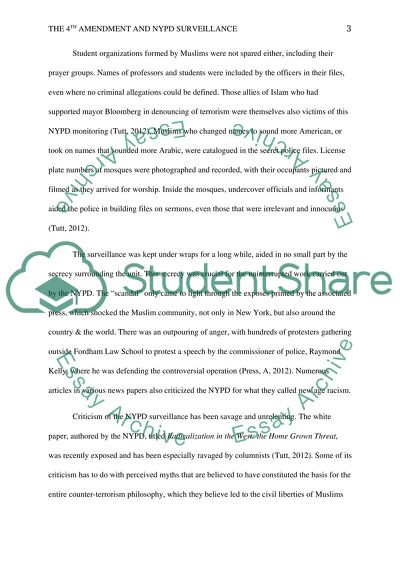Cite this document
(“The fourth amendment and NYPD Surveillance Essay”, n.d.)
Retrieved from https://studentshare.org/history/1446515-4th-amendment-and-nypd-surveillance-paper
Retrieved from https://studentshare.org/history/1446515-4th-amendment-and-nypd-surveillance-paper
(The Fourth Amendment and NYPD Surveillance Essay)
https://studentshare.org/history/1446515-4th-amendment-and-nypd-surveillance-paper.
https://studentshare.org/history/1446515-4th-amendment-and-nypd-surveillance-paper.
“The Fourth Amendment and NYPD Surveillance Essay”, n.d. https://studentshare.org/history/1446515-4th-amendment-and-nypd-surveillance-paper.


